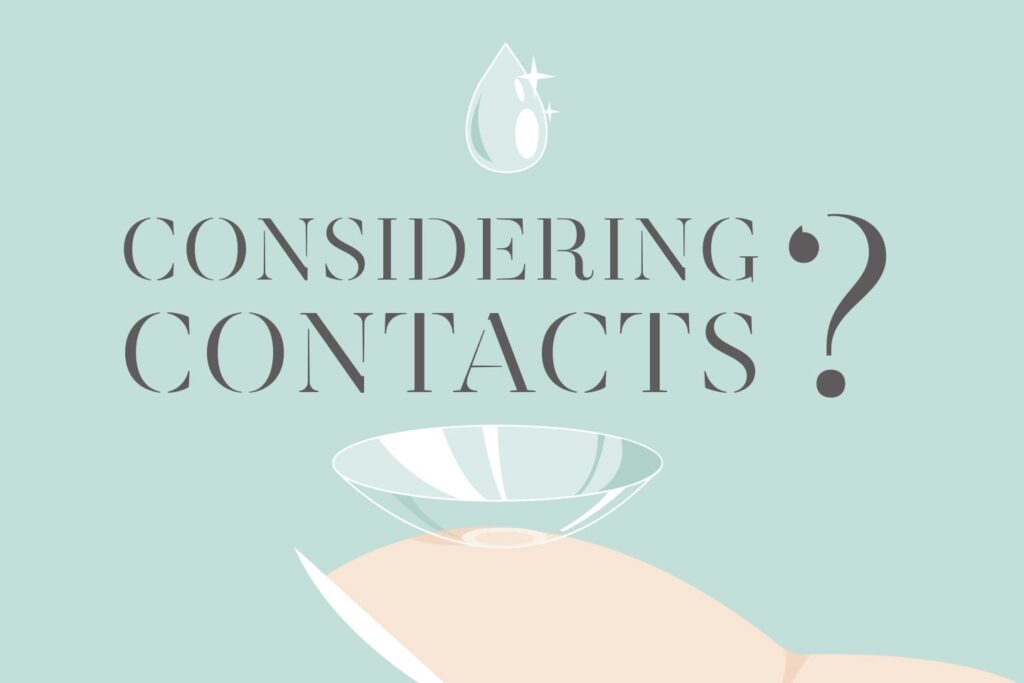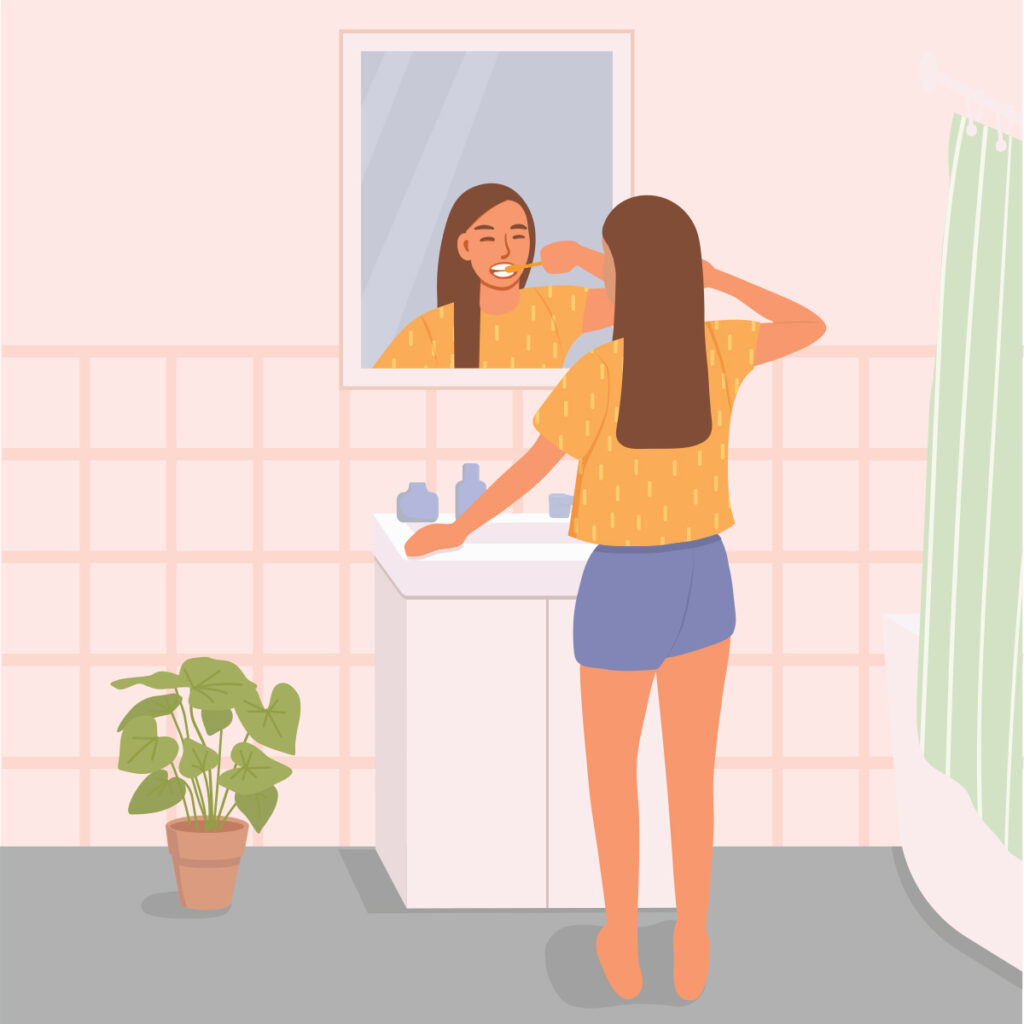
Tired of the way your glasses look or feel? If you’re making the switch to contact lenses, there are multiple types available, so check out this quick list of things to consider when choosing. Depending on your vision needs, personal preferences, and your ophthalmologist’s recommendations, you’re sure to find a pair that’s right for you!
Types
Soft
These work for: nearsightedness, farsightedness, age-related vision loss, blurred vision, or a number of irregularities in the cornea. Slightly more comfortable, popular, and easier to adapt to than hard contact lenses, soft lenses also offer more variety.
You can choose from:
- Daily Wear are less expensive and meant to be removed and sterilized each night.
- Extended Wear are moderately priced and able to be worn while you sleep; however they should be sterilized at least once a week to avoid eye infection.
- Disposable are the most expensive, but can be worn constantly up to the manufacturer’s recommended time limit, at which point, they are thrown away. No need to sterilize.
Hard
More rigid and harder to adjust to than soft lenses, hard lenses have their benefits as well. They serve most vision issues well. They are also more breathable and thus help prevent eye infection and provide comfort to those with dry eyes. While most hard lenses need to be cleaned each night, some varieties are made to last anywhere from one week to 30 days before removing for sterilization. If properly cared for, a good pair of hard lenses can last up to three years.
Hybrid
Made with a hard center and soft exterior rim, hybrid lenses are a great alternative if you struggle to use hard lenses but crave the breathability. These can help nearsightedness, farsightedness, age-related vision loss, or astigmatism.
Bi or Multi-Focal
These come in hard or soft varieties and are good for treating a vision condition (nearsightedness, astigmatism, etc.) in combination with more pronounced vision loss due to aging.
It is also very important to consult your ophthalmologist for advice on which type best suits your eyes, comfort, and vision needs. They will measure you for a good fit, which is crucial to ensure comfort and effectiveness. Be sure to maintain the prescribed hygiene routine for your lenses and attend all follow-up appointments with your ophthalmologist to stay on top of your prescription.




